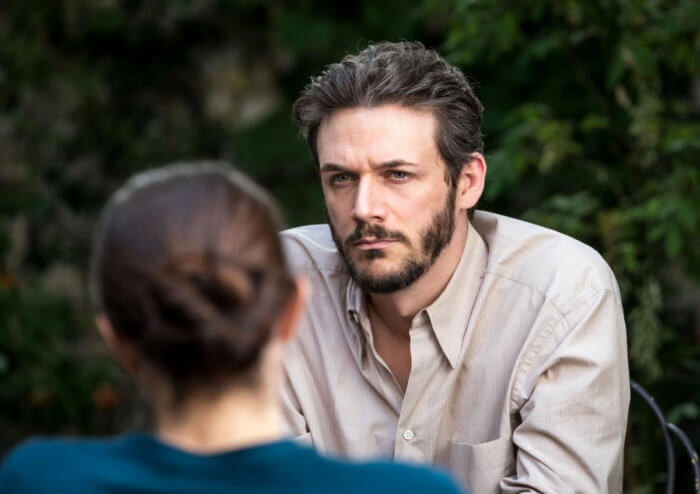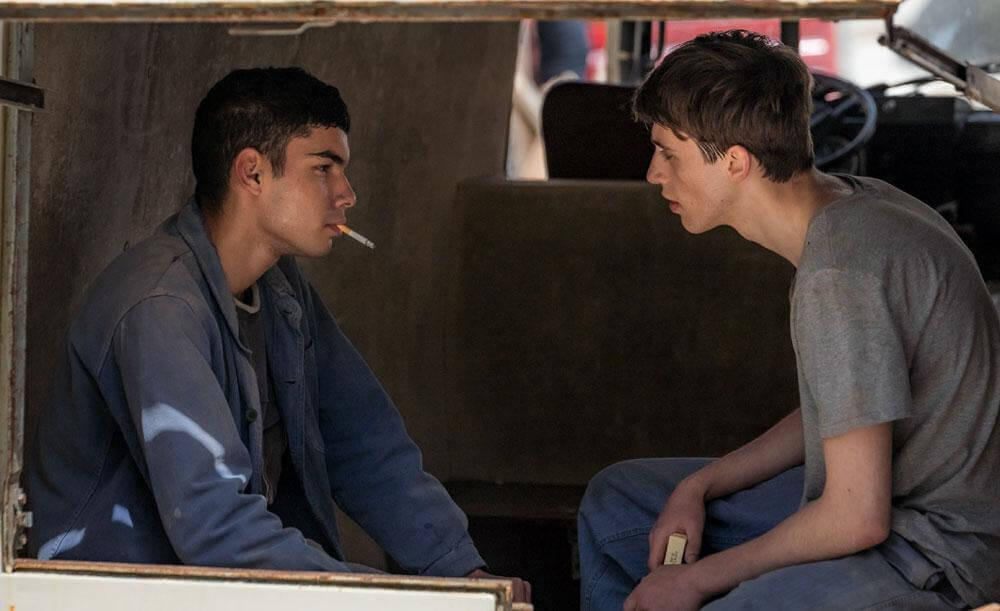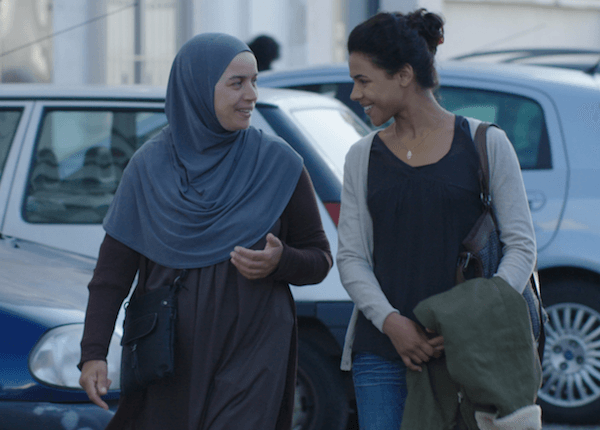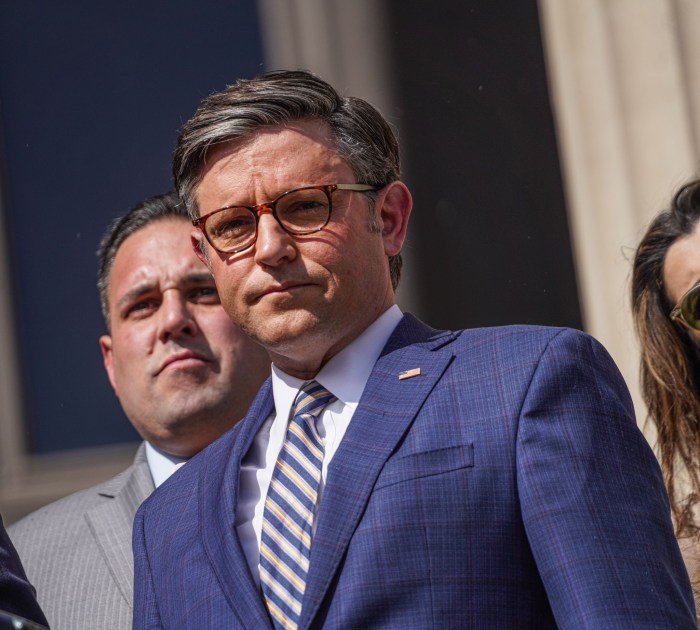Getting an American “virtual theatrical” release, “Proud” is an engaging, three-part French mini-series from 2018 about fathers and sons, gay life in France, and the politics and social change that occurred in that country over the past few decades.
The first episode is set in 1981, when discrimination against gays was still legal in France. The election of François Mitterrand provides a backdrop to emphasize the Socialist issues that attracted voter support and how they influence the characters who are hoping for a stronger France.
Philippe Faucon’s mini-series documents French life from Mitterand to marriage equality
Charles (Frédéric Pierrot) is the manager of a construction site, and his 17 year-old-son Victor (Benjamin Voisin) helps him out after school. One afternoon, Charles spies Victor kissing his classmate Sélim (Sami Outalbali), the son of his foreman, Sofiane (Hafid Djemaï). Charles doesn’t say anything about what he sees, but he is not pleased, and his conflict influences how he treats Victor, Sélim, and Sofiane.
“Proud” shows how the personal is political in both its discussion of race — Sélim and Sofiane are Arab and working-class — and sexuality. Victor tries to “be straight” with his girlfriend, Aurélie (Lou Roy-Lecollinet), but one night he goes out cruising and meets Serge (Stanislas Nordey), an older man who takes him to bed. If this drama enters familiar coming out territory, the series avoids mawkish sentimentality in favor of a shrewd chat between Charles and Serge, with each man hoping to win the devotion of Victor. The episode ends with Victor having to choose.
The program is particularly well acted by Voisin, who makes Victor sympathetic. When Victor is conflicted about his sexuality and bullied in school, his angst is palpable. And his exchanges with Serge express not only the novelty teenagers have when they fall in love for the first time, but also the way they can so easily be heartbroken by a man of experience.
Pierrot and Norday provide strong support; they ground the series and appear in all three episodes.
The second part of “Proud” is set in 1999. Victor (now played by Samuel Theis) is an architect. He is still romantically connected to Serge, but they have an open relationship. Victor is discreet when he fools around, but his real need for discretion comes when he decides he wants to adopt a child — which was not viable for gay men and lesbians at that time in France. Victor’s efforts to adopt show how gay men must subvert rules they did not make and do not want to follow. Meanwhile, civil partnership laws are being voted on — though Victor and Serge say they would prefer full equality.

Adding to Victor’s complications is his unexpected reunion with Sélim (now played by Nicolas Cazalé), whom he meets on a job site. Sélim is married with two kids, but the old flame between them still burns. Before long, the men are stealing kisses and hooking up. How their relationship plays out as well as what transpires with Victor’s efforts to adopt form the central drama in this episode. The series benefits from the frisson between Victor and Sélim — Cazalé is irresistibly sexy — but also the emotional strains that develop between Victor and Serge and Victor and his father.
“Proud” manages these mini-dramas well, but the lessons do get a bit obvious during a scene of Victor listening to opera while contemplating his fraught emotional state. It’s a minor misstep in a series that otherwise moves briskly. Director Philippe Faucon, who co-wrote the screenplay with José Caltagirone and Niels Rahou, makes his points without milking them. The film features a character with AIDS, and a subplot involving Basile (Phénix Brossard), a queer teen facing homelessness, without becoming didactic.
The last episode of the series is arguably the weakest as it concentrates on — spoiler alert — Diego (Julien Lopez), Victor’s adopted son. It is 2013, and Diego is a teenager who gets into fights at school with Paul (Hugo Sire). Diego also falls in love with Paul’s sister, Noémie (Rebecca Marder). Politically, the episode addresses the legalization of gay marriage in France, but more significant is Victor being attacked by extremists on his way to a Pride Parade.
“Proud” uses these situations — as well as Paul and his parents’ homophobia — to show how change is still necessary in contemporary France. If Charles has become more accepting over the decades, Victor, in raising his son, acts more like his father. These family dynamics are interesting to explore, and one wishes Faucon could have expanded his series to that end. Instead, some of the storyline, such as Victor’s flirtation with a doctor (Jérémie Elkaïm), are crammed into the plot for expediency.
This is just another minor drawback in a series that is largely engaging and provocative. The main characters — Charles, Serge, Victor, Sélim, and Diego — may all be stubborn, but they do reach epiphanies.
“Proud” consists of three episodes each approximately 45 to 50 minutes long. It can — and should — be watched in one sitting. When it ends — I’m betting — most viewers will want more.
PROUD | Directed by Philippe Faucon | In French with English subtitles | Kino Lorber | Available in Virtual Cinemas via KinoMarquee at kinomarquee.com/
To sign up for the Gay City News email newsletter, visit gaycitynews.com/newsletter.































